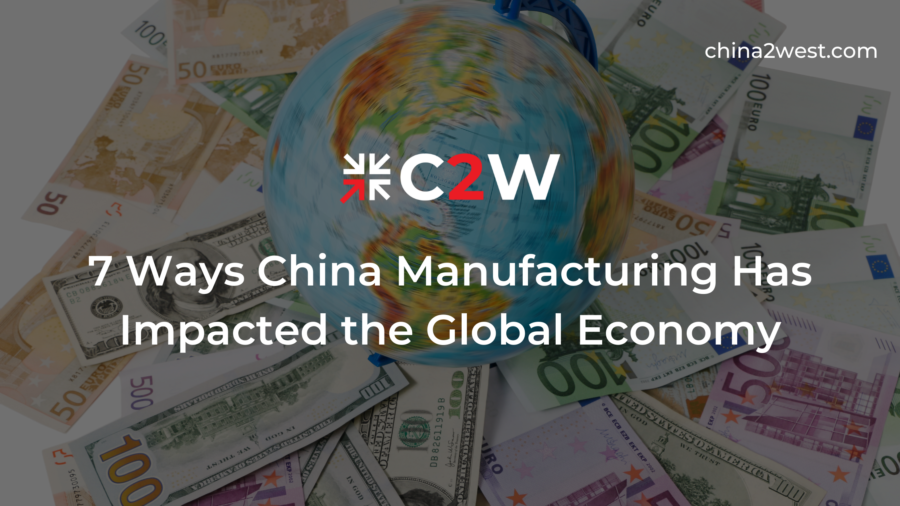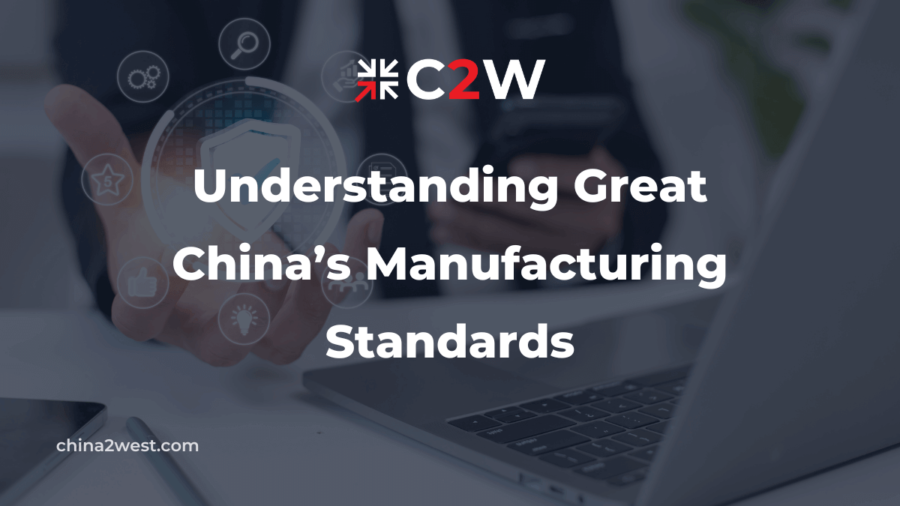Did you know that 28% of world manufacturing happens in China?
This may not be surprising; China has a population of over 1 billion. The next global manufacturing powerhouse on the list is the United States, at 16%–roughly half of the former.
All of this is to say that businesses continue to flock to China to manufacture their brand. Even now, years after the Made in China sticker became ubiquitous.
If you’re on the fence about whether to outsource your product, keep reading for 7 reasons why your business is meant for China manufacturing.
#1 Cheap Labor
It’s important to consider Chinese history to understand why labor can be obtained for prices so low. And why businessmen are willing to pay significant shipping costs to bring China’s manufactured products to the western world.
The majority of China is rural. Over the past decades, it has experienced a drastic migration from these small towns to the big city centers.
When there’s high supply but low demand, prices drop. A lower cost of living means the average person receives a much lower wage.
In addition to this, the competition for jobs in China is high. Industries can adapt quickly to a rapid influx of demand.
In short, your business will significantly reduce its costs by outsourcing to China.
#2 A Tightly-Knit Ecosystem
Shenzhen is known for being the electronics manufacturing hub. And it continues to be the city where many major electronic manufacturers locate their fabrication centers. But what makes Shenzhen unique is that it’s a one-stop shop rather than a node on the supply chain.
Smartphone screens, batteries, and chipsets all require highly-specialized factories to mass-produce them. That is, a single factory cannot produce a phone from start to finish. Different factories make different parts, and then these parts are assembled at the endpoint.
What Shenzhen does is locate all of these unique factories in the same place. Products can be produced, then shipped within the same city to the next section of the manufacturing process. Meaning production times for your product skyrocket.
#3 Competition
China’s overpopulation plays a significant role in its prices. The benefit this offers to you is that competition in China is fierce. Businesses employ every tactic in the playbook to stay afloat, and that means they’ll provide your company with 5-star customer service to make sure you don’t turn to one of their competitors.
An example of this is the IEM (In-ear monitors, a type of hi-fi earbuds) industry. Where for many years IEMs were a luxury market dominated by American and European-based manufacturers, Chinese competitors such as KZ, FIIO, and Blon have made a wide variety of audiophile-quality IEMs affordable for the Average Joe.
As a result, headphone enthusiasts can get a pair of IEMs that will compete with top-of-the-line brands for as low as $25. If your business is struggling to break into a tough, high-cost market, China manufacturing may be the solution.
#4 The Yuan Is Weaker Than the Dollar
While fiat currencies do fluctuate over time, the Chinese Yuan (the national currency) has been in decline since as early as 2005. If your business deals in American Dollars, Euros, Pounds, or other strong currencies, that means more bang for your buck when working with China manufacturing companies.
#5 Limited Regulations
One of the highest costs associated with manufacturing in the West is the strict regulations that dictate everything from minimum wage to production standards.
To be clear, China has improved by leaps and bounds after criticism of its treatment of the working populace. It has instituted significant changes in regulations on wages and workers’ rights. However, compliance in these aspects is low, especially in terms of environmental regulations.
Producing an Apple iPhone in China costs approximately $190, whereas producing it in the USA raises the price to a whopping $600 as a result of said regulations. That means slashing your production costs to the bone without reducing quality.
#6 Lower Taxes and Duties
In 1985, China signed into law an export tax rebate policy. In essence, this prevents exports from being taxed twice. China did this to boost competitiveness in the global market, creating a haven for companies suffering from the high tax burdens of Western countries.
This meant that in China, VAT (value-added tax) was dropped to zero percent—or in some cases returned as a rebate. Further, consumer products originating in China do not need to pay import taxes.
If the pains of imports and exports–and the paperwork nightmare associated with them–have been a negative factor in your business’ function, China manufacturing companies may be for you.
#7 A High Level of Specialization
As a result of the foreign investment in Chinese production lines, China has quickly adapted to providing custom services. Not only can they create product-specific factories, they can create them in record time.
You might find yourself waiting for years as a Western company retools their factory to produce your product. China manufacturing companies, on the other hand, can do so in months. If you’re still in doubt, remember that China built a hospital during the pandemic in 10 days.
Even better, Chinese manufacturers are known for high output and fast turnover. If you’re in a time crunch, your specialized orders can be output in record time.
And as mentioned before, there is a massive labor force. When demand gets high, they can bolster their workforce at the drop of a hat.
Final Thoughts
Giants like Apple and Microsoft—large companies with extensive liquid assets—resort to China manufacturing companies. That may be a sign that your company could benefit from outsourcing to the Middle Kingdom.
This might be a daunting process. It helps to have an expert to guide you past the pitfalls and reap the benefits. China manufacturing companies offer solutions to businesses of all kinds and sizes.


